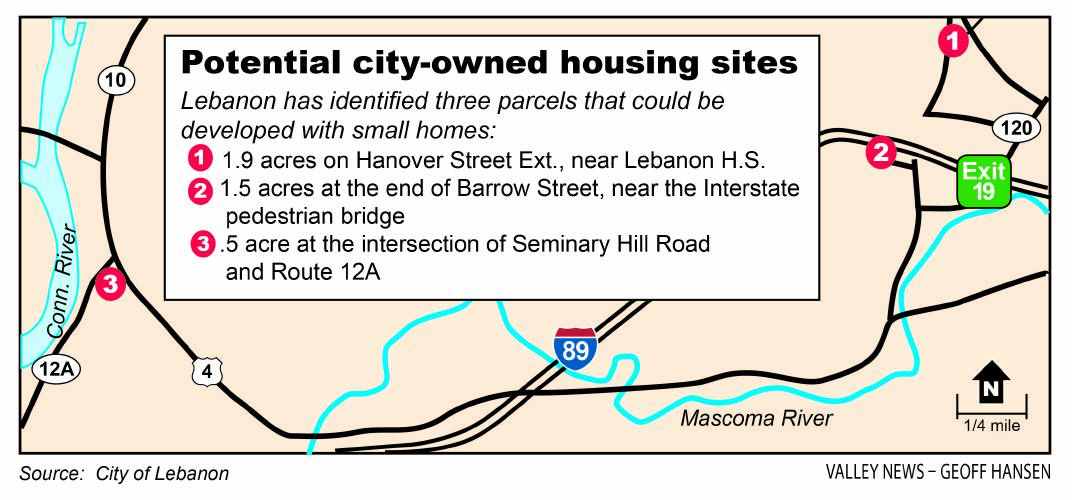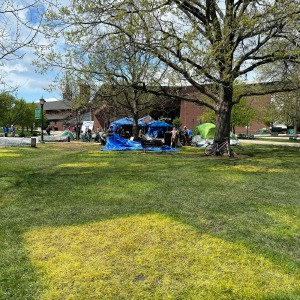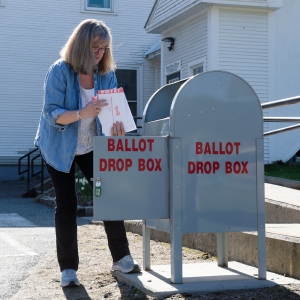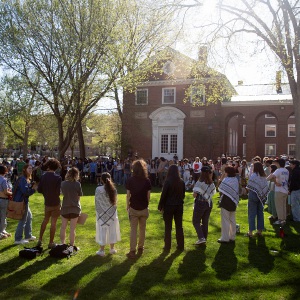Lebanon considers plan to build housing on city-owned properties

|
Published: 02-06-2024 9:46 PM
Modified: 02-09-2024 10:52 AM |
LEBANON — City officials plan to study the suitability of three city-owned properties for affordable housing developments for public employees.
On Wednesday, the City Council will consider a proposal to partner with a private developer and lender to construct “pocket neighborhoods” — a clustered group of small, affordable homes that share an open space — on up to three parcels.
Under the plan, the city would provide the land and money to build the homes. Upon completion, the homes would be sold to buyers at affordable borrowing rates, allowing the city to recoup its investment.
The prospective buyers would be selected through a lottery system, with preference given to municipal and school district employees as well as employees of nonprofit organizations such as the Lebanon Housing Authority, Deputy City Manager David Brooks said at a council meeting last month.
“A recent study found that nearly 70% of city staff don’t live in Lebanon and can’t afford to live in Lebanon, which presents problems in and of itself,” Brooks told councilors at the Jan. 17 meeting.
In an email last week, Brooks indicated that the project is still in its early stages and that a potential developer and lender have yet to be found.
“So far we have communicated with one local lender about being involved, but there have been no discussions yet about borrowing rates,” Brooks said, adding that the city expects to use a bidding process “to identify potential builders or developers once the site plans and building plans are completed.”
The city still is assessing each parcel’s potential for development, Brooks said. This process includes boundary and topographic surveys as well as wetland delineations.
Article continues after...
Yesterday's Most Read Articles
One property is a 1.9-acre parcel on Hanover Street Extension that abuts homes on Old Etna Road. Because there are wetlands in that location, the city needs to study whether a portion of the property could be developed without having an environmental impact, Brooks told councilors last month.
A second site consists of two parcels at 3 Seminary Hill Road that total a half-acre. Brooks told councilors the size of this property might be reduced in the final design of the Dry Bridge project, a state-funded replacement and widening of the nearby South Main Street bridge over a railroad right-of-way. That project is scheduled to begin construction in February 2025.
A third property is at the end of Barrows Street, a dead-end residential lane near Interstate 89 where the city owns two parcels totaling 1.5 acres, which could be merged by discontinuing the right-of-way that divides them, Brooks told councilors at a meeting on Jan. 17.
The number of housing units built will depend on the property, as well as the size and design of the homes, according to Brooks. He wants to create pre-approved housing designs that already meet municipal requirements and fit the character of other homes in the neighborhood.
Pre-approved designs are intended to reduce the costs that developers incur during the permitting phase.
The City Council originally proposed a public-private partnership approach to housing in a 2022 council resolution aimed to incentivize the development of housing types that are not being addressed by the market, despite a high need.
The resolution provides a list of strategic directives to the city administration, including to “partner with … residential developers to utilize city-owned properties for the development of new housing units.”
The resolution also calls for amending city zoning laws to encourage smaller, more affordable housing types, such as cottage courts that consist of up to a dozen homes arranged to fit on parcels of roughly an acre.
In 2023, Lebanon voters approved an ordinance allowing cottage developments on lots of at least 20,000 square feet and with a density of 2,500 square feet per unit.
While developers continue to bring new apartment buildings online, most of which are market-rate, Mayor Tim McNamara noted a dearth of affordable single-family houses, such as starter homes for young couples or smaller houses for retirees who want to downsize.
Many young professionals “are at a point in their life where they want to transition from an apartment to owning their own single family home. … But those options are extremely limited (here),” McNamara said.
The median monthly rent for a two-bedroom apartment in Grafton County is $2,081 — the highest of any county in the state, according to a 2023 New Hampshire Housing study.
McNamara said that few first-time home buyers can afford the median home price in Lebanon, which is “well above $400,000.”
Because of the high costs of construction, developers typically prefer projects where they can maximize the number of units, which leads to more apartments.
“When construction is as expensive as it is in this market, you need to get the most efficient use of every square foot in the house,” McNamara told the council.
To jump-start construction, the city would rely on $440,000 in state funds it expects to receive from Invest NH, a state-funded grant program intended to incentivize the development of affordable workforce housing.
The city would finance the remaining costs through bank loans, according to Brooks.
The cost of the project is not expected to affect taxpayers, Brooks said in an email, because the units would be sold to recoup the city’s investment.
“In addition, we would be adding taxable value to currently vacant parcels that are generating no tax revenues for the city,” Brooks added.
The City Council is scheduled to meet on Wednesday at 7 p.m. at City Hall.
Patrick Adrian may be reached at padrian@vnews.com or 603-727-3216.

 Students take down pro-Palestinian encampment at UVM
Students take down pro-Palestinian encampment at UVM Sharon voters turn back proposal to renovate school
Sharon voters turn back proposal to renovate school Dartmouth administration faces fierce criticism over protest arrests
Dartmouth administration faces fierce criticism over protest arrests
